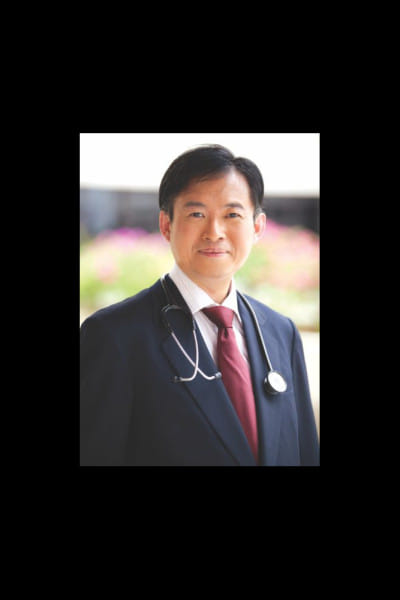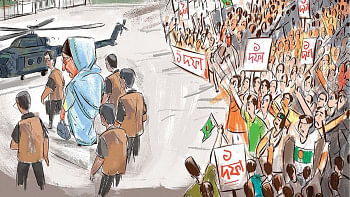In conversation with Dr. Anselm Chi-Wai Lee

Dr Anselm Chi-Wai Lee is a Senior Consultant at the Parkway Cancer Centre in Singapore. A graduate from the University of Hong Kong, Dr Lee is a recognised figure in his field and has been credited with helping hundreds of cancer patients. In 2007, Dr Lee established the Children's Haematology and Cancer Centre – a private healthcare facility that provides specialised clinical care for children with cancers and blood diseases – inParkwayHealth Singapore.
Lifestyle was lucky enough to sit down with the talented doctor for an interview to talk about his work and his patients.
DO YOU HAVE A CHILDCARE PHILOSOPHY?
My childcare philosophy is that every child deserves a future. Every child should be able to live out their dreams.
WHAT IS A TYPICAL DAY LIKE FOR A PAEDIATRICIAN?
The morning typically starts with me checking out the list of patients that are coming in that day and if they have any special needs that need to be tended to. I also look at the in-house patients as well as patients who are here to do a follow up. There are also times when I have to go back to the hospital after office hours to deal with emergencies, especially with patients who come up with complications. At night, typically, I receive two or three phone calls, if there are any changes to any patients in the hospital and whether I need to attend to those changes personally or not.
HOW DIFFERENT IS CANCER FOR A CHILD COMPARED TO THAT OF AN ADULT?
There are actually two major differences. One is the cancers we see in children – interms of variety and types – are very different from adults. Second is in terms of treatment outcome, children do much better than adults. What I mean by that is in adults we see lung cancer, breast cancer, colon cancer or liver cancers but all these cancers are extremely rare in children. Instead, we encounter children suffering most from leukaemia, brain cancers, sarcomas, and also a group of tumours we call embryonal tumours. Why I think children do better is because survival shows us a very big difference. Cancer is a deadly disease if not treated properly but once children receive the right treatment, 75% of the children can survive the cancer. Out of four patients that we diagnose with cancer today, three patients can survive and fight the cancer to reach adulthood.
SHARE A BIT ABOUT THE VARIOUS TRAININGS THAT YOU HAVE TO GO THROUGH IN ORDER TO TREAT CANCER PATIENTS.
There are three phrases of training that I went through and most paediatric oncologists go through this as well. The first is the basic paediatric training. We must know the basic needs of a child before we can attend to their special needs. A lot of times, the complaint of a child with cancer is not so different from a child without cancer. They might be facing urinary problems or they might need oral care or nutritional care – these are all common problems in children so we need to have basic paediatric training. The second part of my training is paediatrichaematology and oncology. This is when you get special training to look at children with blood diseases and cancer. In this area, I had to go into stem cell transplantation as well. The third one is about the diagnostic approaches. In paediatric haematology, you also need to look at cells like a pathologist. So we usually test blood cells and bone marrow cells to see if they are healthy or not. If they are not healthy, we ought to know what is wrong.
CANCER TREATMENTS ARE EXPENSIVE. HOW CAN WE MAKE IT MORE AFFORDABLE?
Unfortunately, cancer treatment is indeed expensive. On a personal side, it is very difficult for you to change anything. Surgery and facilities are all expensive and in terms of paediatric treatment, sometimes we need to use special machines for treatments that you don't usually use for adults. One of the machines that we use to stem cell collection is specially made for children because of the small body size. So these are all expensive investments that a healthcare facility has to deal with. But on the other hand, if we are to make it more affordable, it must be a national programme. A country's health system must look at the special needs involved with cancer patients. By using resources to counter this at a national level, you can have facilities that can tend to a large number of children across the country. That would definitely help bring the cost down to a reasonable level that most individuals can afford.
SHARE ONE OF YOUR CRITICAL CASES.
I went back to Hong Kong last month to visit my family and I got a call from one of my previous patients who happened to know that I was coming back. We had a chat and she told me that next year she is going to get married. I first knew her when she was 11, back in 1990. She had a cancer of the skull bone. She had to undergo surgery, do chemotherapy and radiotherapy to get better. But she did get better. She eventually went on to study medicine and is now a gastroenterologist. She is my second patient with cancer who is now a doctor. I think that the special thing about paediatric oncologists is that we are able to maintain a good relationship with our patients. We have to maintain this relationship in order to help the patient get through the pain of treatment. It's not about just money. The process of chemotherapy and the side effects are indeed very painful. It's important that they have trust in you so that they can get through this, get well and go home. It is this relationship that keeps things going. Nothing makes me happier than sending a patient home.
WHAT WOULD YOU GIVE ADVICE FOR STUDENTS WHO ARE THINKING ABOUT GOING INTO PAEDIATRIC ONCOLOGY?
I think it's a specialty that one must think about carefully. Unless you have the heart to go into the death, pain and suffering of children, you are better off studying another branch of medicine. The first time I told my relatives that I was going into paediatrics, they were very happy because paediatric doctors deal with children who are always laughing and playing. But when I told them that I was actually doing paediatric oncology, their face all changed because then they realised that I would be dealing with life and death. So, if you are thinking of studying paediatric oncology, you have to be ready for all that. I think you need a big heart and a commitment to children who are unique is the most important thing you need to pursue a career in paediatric oncology.
By Naveed Naushad

 For all latest news, follow The Daily Star's Google News channel.
For all latest news, follow The Daily Star's Google News channel. 



Comments